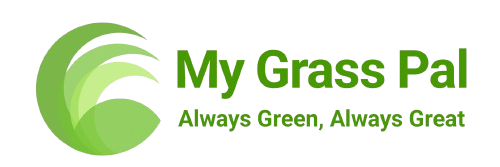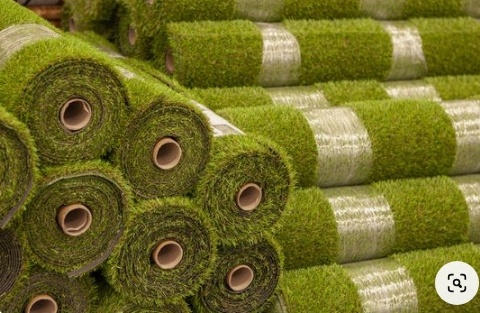When considering ways to enhance your property’s value, artificial grass often isn’t the first thing that comes to mind. However, as homeowners and real estate investors alike are beginning to discover, artificial turf can be a powerful tool in boosting the overall appeal and worth of a property. The demand for low-maintenance, aesthetically pleasing, and environmentally friendly landscapes is on the rise, making artificial grass an increasingly attractive option. In this article, we will delve into how installing artificial grass can significantly increase your property value.
Enhancing Curb Appeal with Artificial Grass
The first impression of a home is crucial, and nothing creates a more striking first impression than a lush, green lawn. Artificial grass offers the visual appeal of a perfectly manicured lawn all year round without the seasonal changes that can leave natural grass looking less than ideal. A property that boasts a consistently green and well-maintained lawn can attract potential buyers and leave a lasting impression.
Moreover, with the growing concerns over water conservation and the environmental impact of traditional lawns, the low-water requirement of artificial grass makes it even more appealing. Homebuyers are increasingly interested in properties that are eco-friendly, and artificial grass ticks this box, contributing to the overall sustainability of the home.
The Cost-Effective Nature of Artificial Grass
Another significant factor in increasing property value is the cost-effectiveness of artificial grass. While the initial installation might be higher than natural sod, the long-term savings are substantial. There’s no need for regular mowing, watering, fertilizing, or pest control—all of which can add up over time. This low-maintenance aspect not only saves money but also appeals to potential buyers who prefer a hassle-free lifestyle.
In regions where water is a precious commodity, the fact that artificial turf requires no irrigation can be a huge selling point. The savings on water bills alone can be a strong incentive for buyers, particularly in drought-prone areas.
Year-Round Usability and Versatility
Unlike natural grass, which can become muddy, patchy, or brown during certain times of the year, artificial grass maintains its vibrant green appearance regardless of the season. This consistency is particularly appealing in climates where weather conditions can be harsh on natural lawns.
Furthermore, artificial grass is versatile enough to be used in a variety of settings beyond the traditional lawn. From rooftop gardens and balconies to indoor play areas and pool surrounds, the flexibility of artificial turf enhances the usability of various parts of a property. This expanded functionality can be a major selling point, especially in urban areas where outdoor space is limited.
Durability and Longevity
Artificial grass is designed to withstand heavy use and extreme weather conditions. This durability ensures that the lawn will look pristine for many years, even with constant foot traffic or exposure to the elements. Unlike natural grass, which can suffer from wear and tear, artificial turf is resistant to fading, puddling, and damage caused by pests.
This long-lasting quality of artificial grass means that homeowners won’t have to worry about the lawn deteriorating over time, which can be a significant factor in maintaining or even increasing property value. Potential buyers will appreciate the fact that they won’t need to invest in lawn repairs or replacements shortly after purchasing the property.
Environmental Benefits of Artificial Grass
As mentioned earlier, the environmental benefits of artificial grass are a strong selling point for today’s eco-conscious buyers. The fact that artificial turf doesn’t require pesticides, fertilizers, or herbicides means that it’s a much greener alternative to traditional lawns. This reduction in chemical use is beneficial not only for the environment but also for the health of the property’s residents and local wildlife.
Additionally, because artificial grass doesn’t require watering, it contributes to water conservation efforts, which is a growing concern in many parts of the world. The environmental impact of a property is increasingly important to potential buyers, and artificial grass can help position a property as a more sustainable choice.
Artificial Grass and Property Marketability
One of the lesser-known benefits of artificial grass is how it can make a property more marketable. Homes with artificial grass often photograph better than those with natural grass, which can give them an edge in online listings. The vibrant, consistent appearance of artificial turf makes the property stand out, attracting more interest from potential buyers.
Furthermore, in competitive real estate markets, any unique feature that sets a property apart can be a significant advantage. The presence of artificial grass can be that distinguishing factor, offering a low-maintenance, attractive landscape that appeals to a wide range of buyers.
Increased Livable Space
Artificial grass isn’t just for front lawns—it can be used to enhance various outdoor living spaces, effectively increasing the livable space of a property. From transforming a backyard into a year-round entertainment area to creating a safe, clean play space for children, the addition of artificial grass can make outdoor areas more usable and enjoyable.
This expansion of functional outdoor space is particularly valuable in urban settings where indoor space may be limited. By creating a low-maintenance, attractive outdoor living area, artificial grass can add significant value to a property.
Improving Home Value in Drought-Prone Areas
In regions where water restrictions are common, artificial grass can be a significant asset. Properties in drought-prone areas that have natural lawns often face challenges with maintaining lush, green grass due to water limitations. Artificial turf eliminates this issue, providing a beautiful, green lawn regardless of local water restrictions.
For homebuyers in these regions, the ability to maintain an attractive landscape without violating water usage guidelines can be a major selling point. As water conservation becomes more critical, homes with artificial grass will likely see an increase in demand and, consequently, an increase in property value.
The Return on Investment of Artificial Grass
When considering home improvements, homeowners often look at the return on investment (ROI) to determine the potential value increase. While the ROI of artificial grass can vary depending on location, installation quality, and market conditions, it generally provides a favorable return. The combination of aesthetic appeal, low maintenance costs, and environmental benefits make artificial grass a wise investment that can lead to a higher resale value.
In areas where curb appeal plays a significant role in property value, the ROI of artificial grass can be particularly high. Buyers are often willing to pay a premium for homes that require less upkeep, look beautiful year-round, and contribute to water conservation efforts.
Conclusion
In conclusion, artificial grass offers a multitude of benefits that can significantly increase your property’s value. From enhancing curb appeal and reducing maintenance costs to contributing to environmental sustainability and expanding livable space, artificial grass is a smart investment for any homeowner looking to boost their property’s worth. Whether you’re preparing to sell or simply want to enjoy a more attractive, low-maintenance lawn, artificial grass can provide lasting value and appeal.

